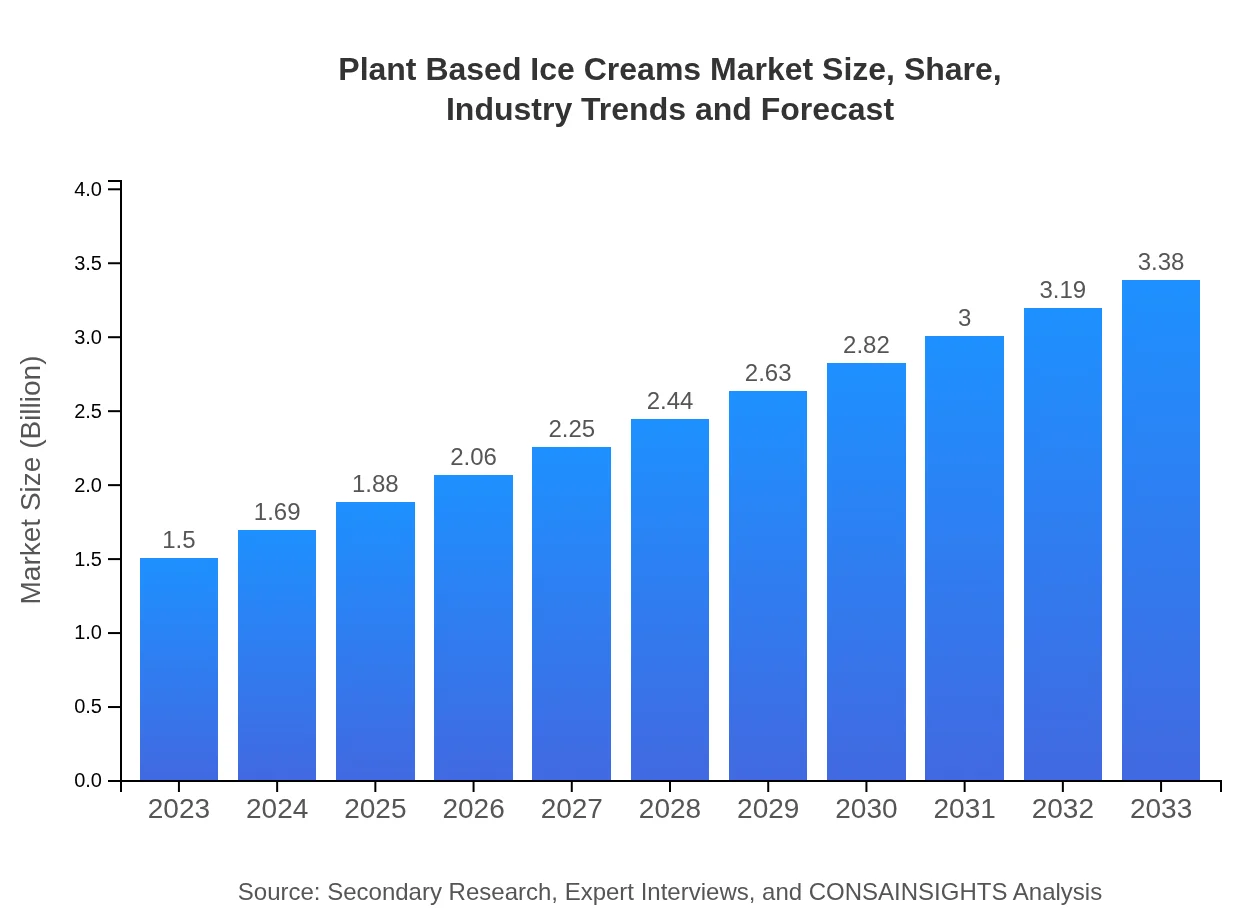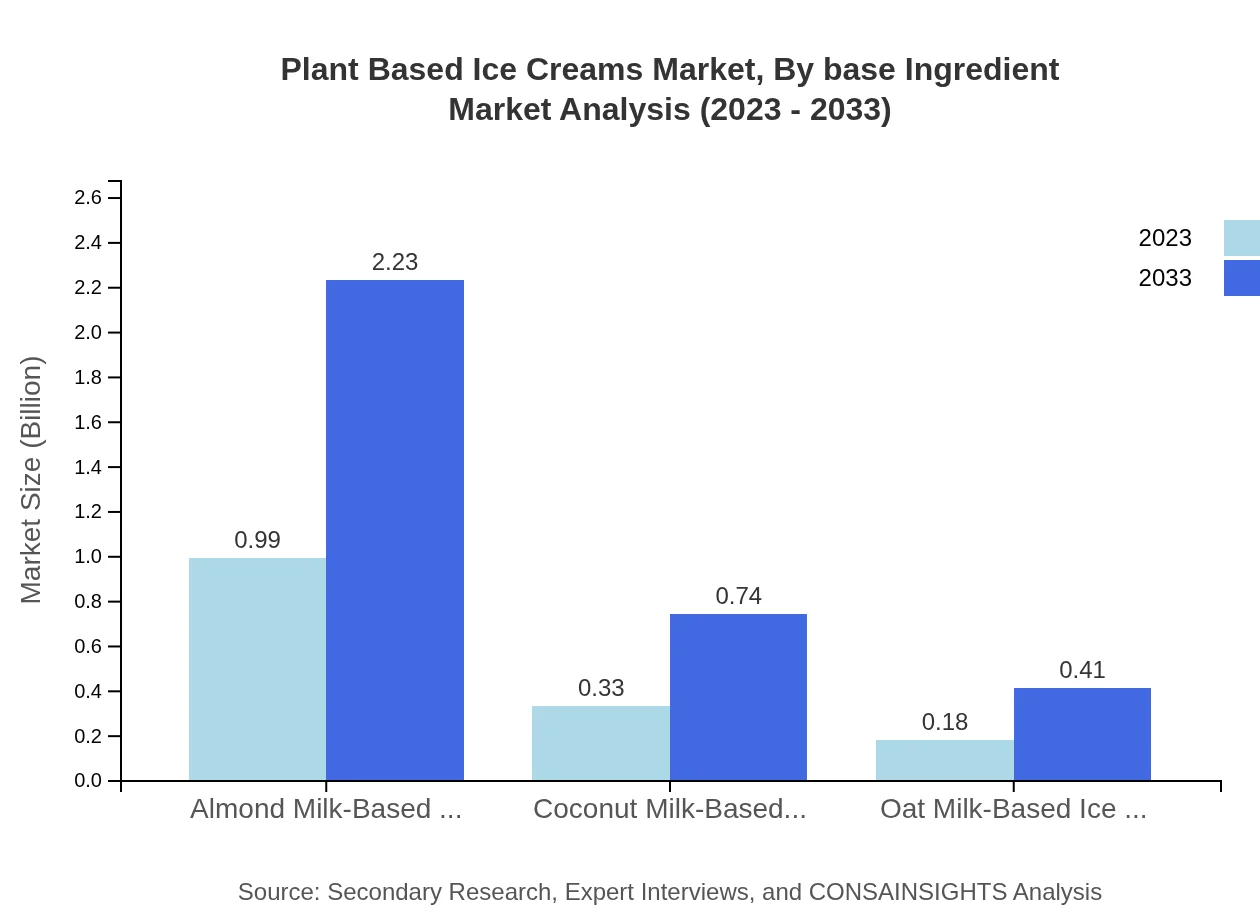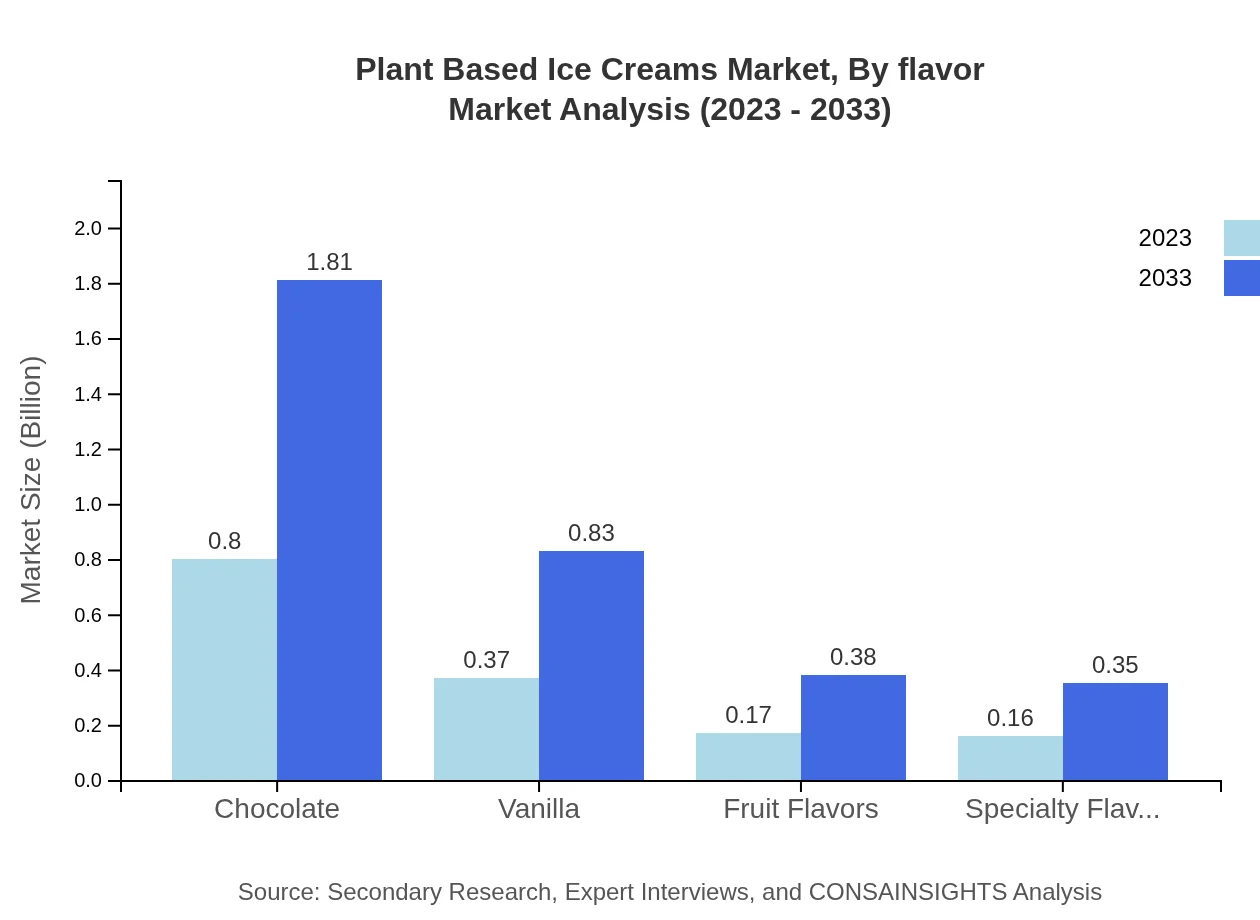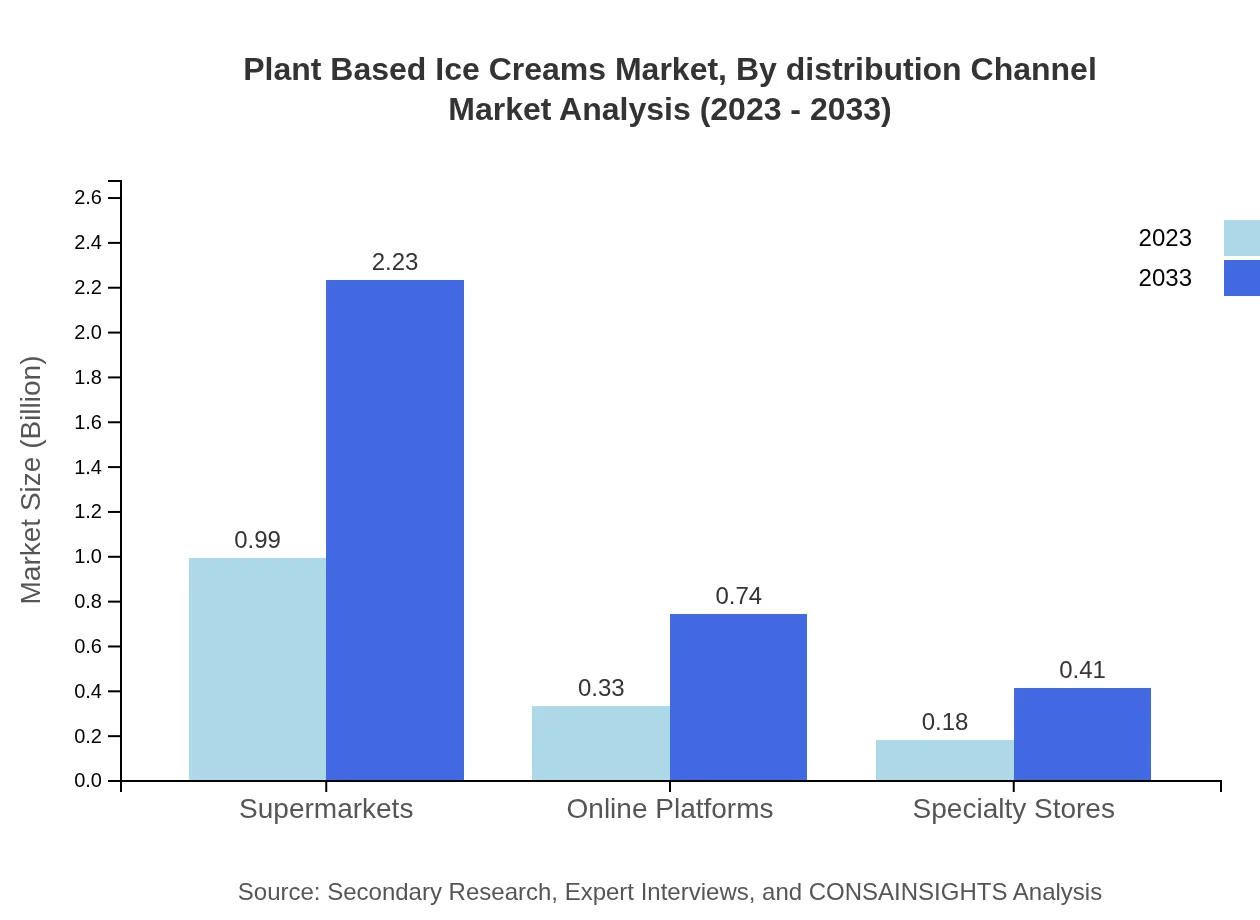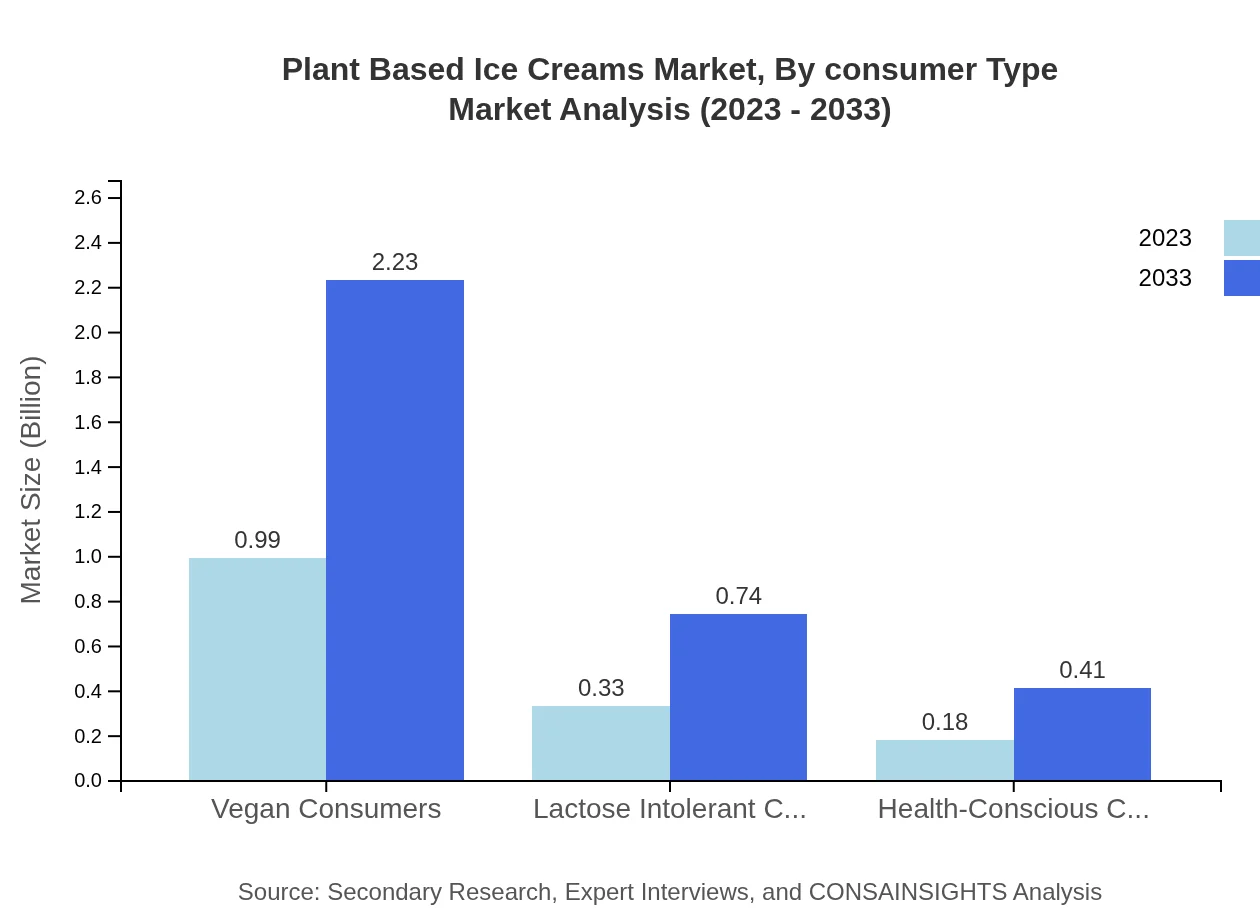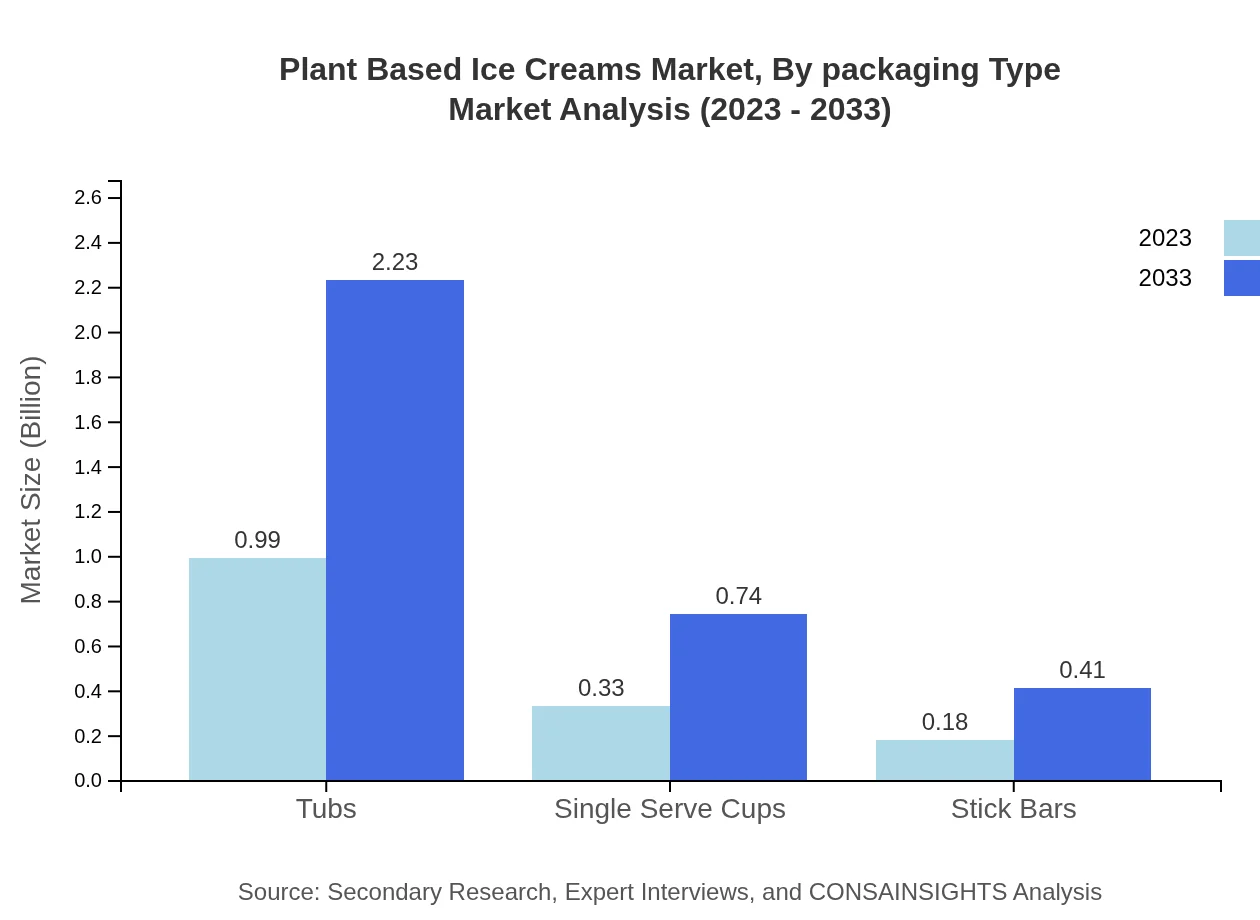Plant Based Ice Creams Market Report
Published Date: 31 January 2026 | Report Code: plant-based-ice-creams
Plant Based Ice Creams Market Size, Share, Industry Trends and Forecast to 2033
This report provides an in-depth analysis of the plant-based ice creams market, covering market trends, segmentation, regional insights, and forecasts for 2023 to 2033. Key data on industry growth, major players, and technological advancements are included to guide stakeholders in strategic decision-making.
| Metric | Value |
|---|---|
| Study Period | 2023 - 2033 |
| 2023 Market Size | $1.50 Billion |
| CAGR (2023-2033) | 8.2% |
| 2033 Market Size | $3.38 Billion |
| Top Companies | Ben & Jerry's, So Delicious Dairy Free, NUBOCHA, Oatly |
| Last Modified Date | 31 January 2026 |
Plant Based Ice Creams Market Overview
Customize Plant Based Ice Creams Market Report market research report
- ✔ Get in-depth analysis of Plant Based Ice Creams market size, growth, and forecasts.
- ✔ Understand Plant Based Ice Creams's regional dynamics and industry-specific trends.
- ✔ Identify potential applications, end-user demand, and growth segments in Plant Based Ice Creams
What is the Market Size & CAGR of Plant Based Ice Creams market in 2023?
Plant Based Ice Creams Industry Analysis
Plant Based Ice Creams Market Segmentation and Scope
Tell us your focus area and get a customized research report.
Plant Based Ice Creams Market Analysis Report by Region
Europe Plant Based Ice Creams Market Report:
Europe's plant-based ice cream market is forecasted to grow from USD 0.37 billion in 2023 to USD 0.84 billion by 2033. Key markets include the UK, Germany, and France, where consumers are increasingly shifting towards healthier dessert alternatives.Asia Pacific Plant Based Ice Creams Market Report:
In the Asia Pacific region, the plant-based ice cream market was valued at USD 0.31 billion in 2023, projected to grow to USD 0.69 billion by 2033. Factors such as increasing lactose intolerance and a rise in veganism are propelling market growth, especially in countries like Australia and Japan.North America Plant Based Ice Creams Market Report:
North America currently dominates the market with a valuation of USD 0.53 billion in 2023, anticipated to reach USD 1.19 billion by 2033. The surge in veganism and lactose intolerance awareness, coupled with increased availability of plant-based products in supermarkets and online platforms, significantly fuels market expansion.South America Plant Based Ice Creams Market Report:
The South American market, with an initial valuation of USD 0.13 billion in 2023, is expected to expand to USD 0.29 billion by 2033. The growth is driven by rising health consciousness and demand for vegan products, particularly in Brazil and Argentina.Middle East & Africa Plant Based Ice Creams Market Report:
The Middle East and Africa region is expected to grow from USD 0.16 billion in 2023 to USD 0.36 billion by 2033. As the region experiences increasing health trends and awareness about lactose intolerance, the demand for plant-based ice creams is gradually rising.Tell us your focus area and get a customized research report.
Plant Based Ice Creams Market Analysis By Base Ingredient
The plant-based ice cream market is segmented by base ingredients, including almond milk-based, coconut milk-based, and oat milk-based ice creams. Almond milk-based ice creams dominate the market, accounting for 65.88% share in 2023 and growing to a market size of USD 2.23 billion by 2033. Coconut-based options hold an 22% share with projected growth, while oat milk-based offerings represent 12.12% and are gaining traction due to their creaminess and flavor profiles.
Plant Based Ice Creams Market Analysis By Flavor
Flavors such as chocolate, vanilla, fruit, and specialty flavors characterize the market. Chocolate is the leading flavor, with a market size of USD 0.80 billion in 2023, expected to reach USD 1.81 billion by 2033, maintaining a 53.6% share. Vanilla follows with a market size of USD 0.37 billion, growing to USD 0.83 billion, holding a 24.6% share.
Plant Based Ice Creams Market Analysis By Distribution Channel
The distribution channels include supermarkets, online platforms, and specialty stores. Supermarkets account for the largest share at 65.88% in 2023 ($0.99 billion), rising to $2.23 billion by 2033. Online platforms and specialty stores are also capturing consumer interest due to convenience and unique offerings.
Plant Based Ice Creams Market Analysis By Consumer Type
Key consumer segments include vegan consumers, lactose intolerant individuals, and health-conscious consumers. Vegan consumers dominate the market with a size of $0.99 billion projected to grow to $2.23 billion, maintaining a share of 65.88%. Lactose intolerant and health-conscious consumers also represent significant markets, with shares of 22% and 12.12% respectively.
Plant Based Ice Creams Market Analysis By Packaging Type
Packaging types in the market include tubs, single serve cups, and stick bars. Tubs lead the market with a 65.88% share in 2023, valued at $0.99 billion, projected to reach $2.23 billion by 2033. Single serve cups and stick bars hold 22% and 12.12% of the market share respectively, as consumers increasingly prefer convenient packaging.
Plant Based Ice Creams Market Trends and Future Forecast
Tell us your focus area and get a customized research report.
Global Market Leaders and Top Companies in Plant Based Ice Creams Industry
Ben & Jerry's:
A pioneer in the plant-based ice cream segment, Ben & Jerry’s offers a range of innovative flavors made from almond and cashew milk, maintaining a strong commitment to social justice and sustainability.So Delicious Dairy Free:
A leader in the dairy-free market, So Delicious provides a wide variety of non-dairy frozen desserts made from coconut and almond milk, with a focus on quality ingredients and flavor.NUBOCHA:
NUBOCHA specializes in coconut-based ice creams, known for their unique flavors and clean ingredient lists, appealing to health-conscious consumers.Oatly:
Known for its oat milk products, Oatly has emerged as a major player in the plant-based ice cream market with its creamy textures and innovative flavors.We're grateful to work with incredible clients.









FAQs
What is the market size of plant Based ice creams?
The global market for plant-based ice creams is valued at approximately $1.5 billion in 2023, with a projected CAGR of 8.2%. This growth reflects the increasing consumer demand for dairy alternatives.
What are the key market players or companies in the plant Based ice creams industry?
Key players in the plant-based ice creams market include companies like Ben & Jerry's, So Delicious, Almond Dream, and Oatly. These brands lead the market with innovative products catering to diverse consumer preferences.
What are the primary factors driving the growth in the plant Based ice creams industry?
Key drivers of growth include increasing health awareness, the rise of lactose intolerance, and the expanding vegan population. Additionally, innovative flavors and the growing popularity of plant-based diets significantly contribute to market expansion.
Which region is the fastest Growing in the plant Based ice creams market?
North America is the fastest-growing region for plant-based ice creams, projected to grow from $0.53 billion in 2023 to $1.19 billion by 2033. Europe and Asia Pacific also show significant growth potential in this sector.
Does ConsaInsights provide customized market report data for the plant Based ice creams industry?
Yes, ConsaInsights offers customized market report data catering to the plant-based ice creams industry, providing tailored insights and analysis relevant to specific business needs and market segments.
What deliverables can I expect from this plant Based ice creams market research project?
You can expect comprehensive deliverables, including detailed market analysis, segment insights, growth forecasts, competitor profiles, and strategic recommendations tailored to your business objectives.
What are the market trends of plant Based ice creams?
Current trends include increased demand for unique flavors like chocolate and fruit, a surge in online sales channels, and a focus on sustainable packaging. Furthermore, lactose intolerance and veganism are driving significant consumer interest.

